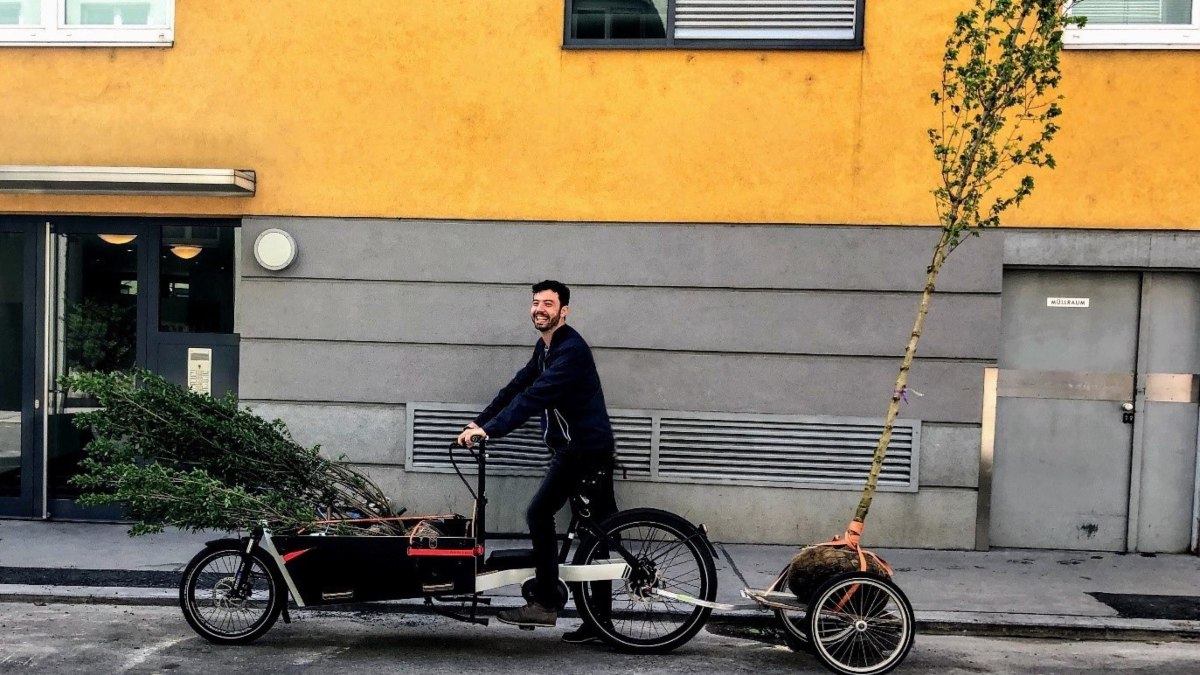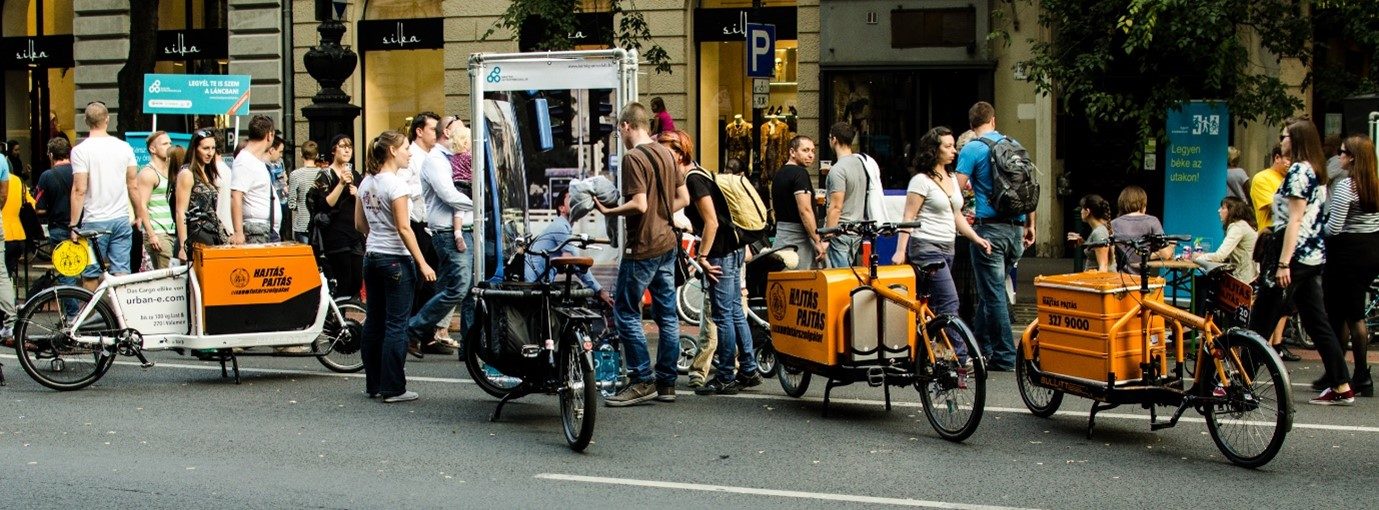
Cargo bikes on the rise: Reimagining city logistics
ECF’s new #CargoBike article series shines the spotlight on the cargo bike, a rising star in the sustainable transition of our cities, by taking a closer look at what roles cargo bikes play in Brussels and Lisbon, two major European cities.
The diversity of cargo bikes is truly astonishing. Whether for business or private purposes, cargo bikes take many different shapes and forms. Besides the cyclist, they can carry goods and people of up to 250 kg and can even be coupled with a trailer for extra capacity.
Without a doubt, cargo bikes show great potential to increasingly shift away from motorised vehicles. In Europe, it is estimated that 50% of all motorised trips that involve the transport of goods in cities could be shifted to cargo bikes and bicycles. Private trips represent the biggest potential with two-thirds of all motorised trips being convertible to cargo bikes, an estimation that foreshadows a bright future for cargo bikes and families.
There are great opportunities for businesses, too. Nowadays, the retail, food and logistics sectors are filling cities with vans and small trucks, resulting in highly congested roads, traffic noise and poor air quality being the daily routine for city dwellers. The pandemic has further exacerbated the acceleration of e-commerce, which keeps delivery volumes on a constantly rising slope. Pressure on urban freight logistics will increase as a great part of in-store shopping trips gradually shifts to commercial deliveries.

While cities are forecast to be home to 60% of the world’s population by 2025, CIVITAS has estimated that we can expect about 0.1 urban deliveries per person daily and between 300 and 400 freight vehicle trips per 1,000 inhabitants. In such a context, the need for innovative alternatives and new urban logistics models is more urgent than ever.
The cargo bike answers to the drawbacks and bottlenecks of the traditional logistics models. It is quick, energy-efficient and cost-effective, and it is a fun part of our cities. In 2019, sales of cargo bikes were already booming, with a 60% increase reported. The cargo bike has a considerable potential to reduce motorised traffic in cities, but more work is needed to unleash its full potential.
The current logistics models have relied for decades on vans and small trucks to carry out last-mile deliveries, and a simple transposition of these models to cargo bikes will likely fail to demonstrate their efficiency and rentability in dense urban areas. Their success will instead rely on the ability of companies to master new distribution models based on the capabilities and strengths of cargo bike fleets.

Municipalities have a key role to play in fostering the uptake of cargo bikes. This requires investing in infrastructure, from dedicated cycling paths wide enough to accommodate cargo bikes and bicycles to shared logistics hubs. It also requires regulatory measures in favour of cycle logistics, subsidy programmes for cargo bikes and cargo bike sharing schemes.
A lot of ways exist for municipalities and companies to introduce and promote cargo bikes in their city, and this is exactly what the #CargoBike article series is going to be about. Next up: Interviews featuring local figures active in their city’s mobility transition.
Read the second article of this #CargoBike series here.
The European Cyclists’ Federation is part of the City Changer Cargo bike project, which brings together 22 partners from all over Europe in the quest to achieve a faster, more cost-effective and larger-scale deployment of cargo bikes. Find out more: www.cyclelogistics.eu
Photos Credit: City Changer Cargo Bike
Join us in Velo-city 2021 Lisboa and attend our sessions on Cargo Bikes: • ‘Exploring the Endless Potential of Cargo Bikes’ - September 7, 11:00-12:00, Room 1. • ‘E-commerce Boom: Cargo Bikes to the Rescue!’ - September 9, 10:15-11:15, Room 3. Programme.
Network/Project Involved:
Contact the author
Recent news!
Upcoming events
Contact Us
Avenue des Arts, 7-8
Postal address: Rue de la Charité, 22
1210 Brussels, Belgium









